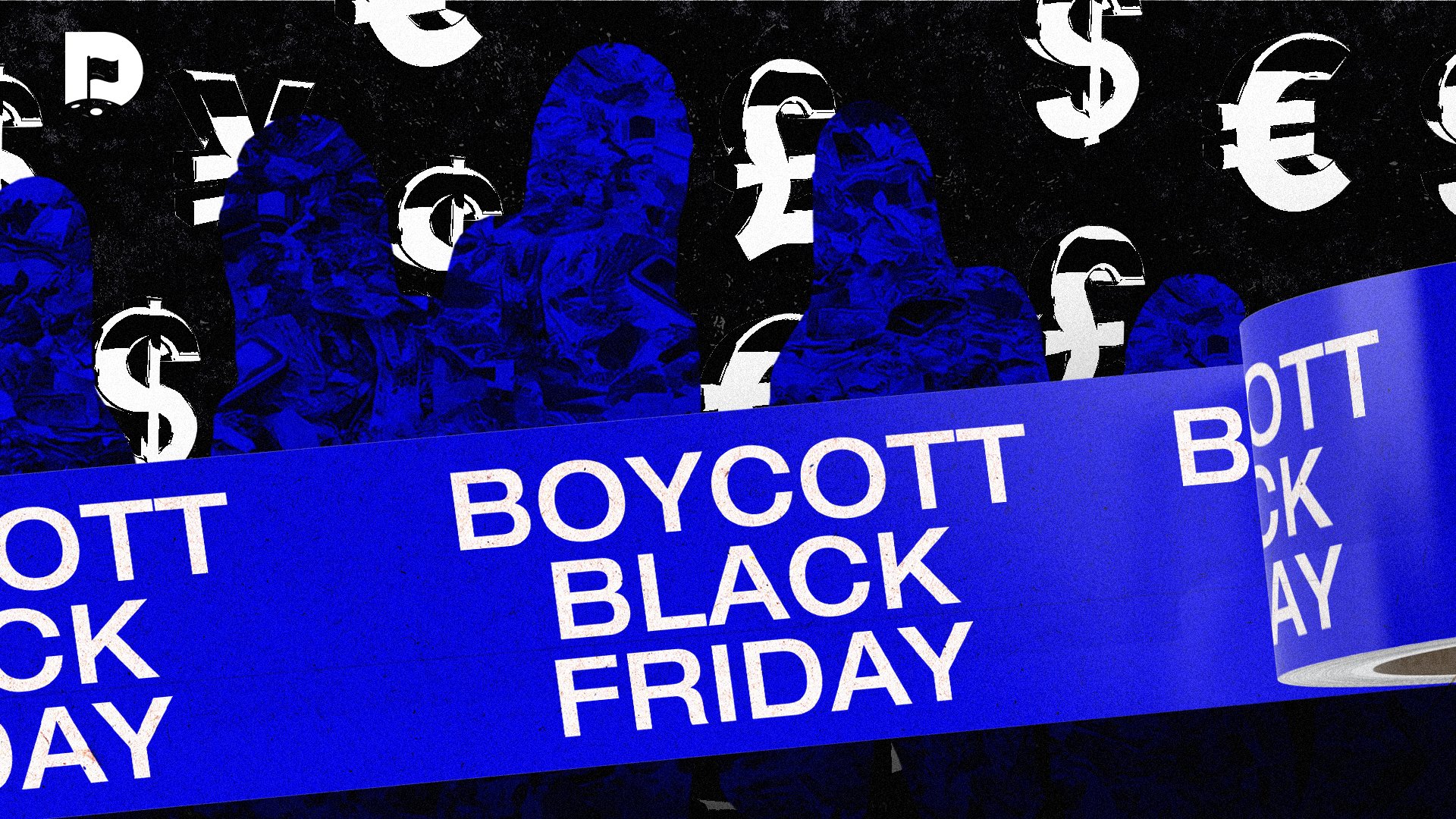Boycotting Black Friday - Putting Purpose Above Profit to Pack a Punch | Marketing for the Future
Marketing for the Future
Boycotting Black Friday - Putting Purpose Above Profit to Pack a Punch
A number of brands have taken to boycotting Black Friday over the years, subverting expectations with clever campaigns. Who is leading the charge?
In recent years, anti-Black Friday campaigns have been gaining momentum, and a growing movement to boycott the occasion or re-appropriate it for a greater good is picking up speed. Marketers and purpose-driven companies have begun to see Black Friday as an opportunity to once again steadfastly declare their purpose. In a cultural landscape that is coming to appreciate transparent brands whose bottom line is purpose over profit, these campaigns have actually been a calculated balancing act that marries the two. Brands are actually finding that going rogue on the year’s biggest festival of consumption can pay off for their brand as much as for the planet.
You can’t talk about Black Friday purpose marketing without mentioning Patagonia. Their 2011 full-page ad in the New York Times instructing readers not to buy their jacket launched an annual anti-Black Friday marketing campaign which has seen new invocations year on year. The ad was a seminal document in transparent marketing, refusing to sugarcoat the production processes required to produce an item - among the listed factors were the 36 gallons of water required, the 20 pounds of carbon dioxide emitted, and the amount of waste produced. The ad actually increased sales by 30%, proving that purpose-oriented messaging struck a chord in consumers.
However, a crucial part of that success is that Patagonia has lived and breathed a more sustainable purpose since its inception in 1973. Since 1986, they have committed 1% of their sales or 10% of their profits - whichever was highest - to environmental initiatives, dubbing this a ‘self-imposed earth tax’. In 2005, they also launched the common threads initiative, encouraging users to reduce waste by creating a second-hand market for Patagonia products on eBay, and assisting with repairs or damaged clothing if customers preferred this option. Their 2016 Black Friday marketing campaign pledged to donate all revenues to environmental protection groups, and sales smashed through their estimates to reach a whopping $10million.
Another apparel brand that took a unique approach to Black Friday marketing in 2020 is Allbirds, which christened a new Green Friday holiday. The sustainable accessories and footwear brand launched the campaign “Break tradition, not the planet” where instead of slashing prices on products, they raised them across their entire collection. The price increase of $1 was matched by the company and the entire additional proceeds donated to Fridays for Future, the international climate movement founded by Greta Thunberg. What began in 2016 as an innovation in footwear to create a more comfortable alternative to leather sneakers, has naturally found its purpose as an eco-friendly company.
Another purpose marketing Black Friday campaign worth noting, is beauty and skincare brand Deciem. Building off of the principles of buying less, but better, Deciem in 2020 launched their #KNOWvember campaign in which they gave customers the time to put in real thought to purchases, instead of a short window of opportunity in which to make rash decisions. This campaign really aligned with their identity as a skincare brand intent on providing solutions for customers predicated on education and conscious consumption. They closed all stores as well as the website, offering the breathing space for consumers to reflect on the hyper-consumerism that has become such a permanent fixture of our societies.
These examples demonstrate the transparency required for successful purpose marketing. Allbirds and Deciem showed with concrete action they mean serious business when it comes to their impact on the environment, and their business model outside of the Black Friday marketing campaign bolster their credentials. We all know of Patagonia’s reputation as an eco-conscious brand, and yet they keep the campaigns original and creative. The reality is that when brands operate with empathy and ingrained purpose, using it to fuel every marketing campaign, decision, message, product, service and experience, they can reap the rewards. Whilst these companies are purpose driven through and through, they develop an easy-to-follow rubric for all brands to follow.
In a year that has been incredibly disruptive, retail habits and marketing have changed accordingly. COVID-19 has allowed us to take a breath and reflect on unsustainable lifestyles and habits that we blindly propped up. 2021 is a landscape in which consumers can demand ever more radical change from brands, and we look forward to seeing these kinds of unprecedented Black Friday campaigns become the norm.
Next week, we focus on a case study of a brand with a huge supply chain that built a gargantuan legacy providing a product.

